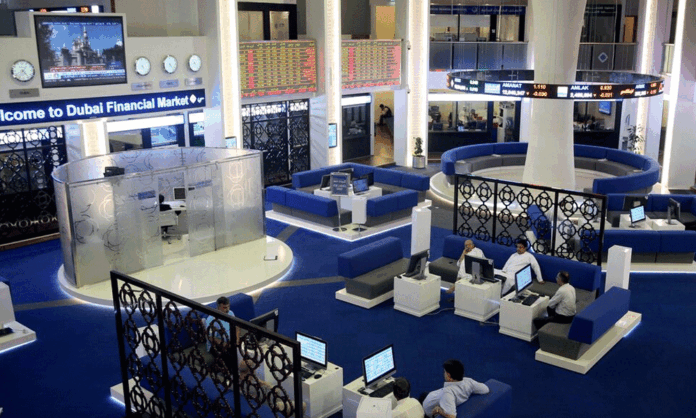Major stock markets in the Gulf ended higher on Sunday, boosting investor morale as earnings season in the region heated up, although a decline in oil prices weighed on sentiment.
Saudi Arabia’s benchmark index edged 0.1% higher, with aluminium product manufacturer Al Taiseer Group rising 0.3% and Al Rajhi Bank closing 0.7% higher.
Among other gainers, Saudi Arabian Amiantit advanced 5.2% after the pipe manufacturer swung to a quarterly profit of 5.1 million riyals ($1.36 million), from a loss of 10.1 million riyals a year earlier.
Elsewhere, Saudi Tadawul Group – the owner of the Saudi Exchange – gained 1.8%, following a sharp rise in quarterly profit.
On the other hand, Sahara International Petrochemical eased 0.7% after reporting a fall in quarterly net profit.
In Qatar, the index added 0.3%, with petrochemical maker Industries Qatar putting on 1.1%.
However, Qatar International Islamic Bank retreated 1.3%, ahead of its earnings release.
Oil prices – a catalyst for the Gulf’s financial markets – settled more than $2 per barrel lower on Friday at their lowest level since mid-June as investors eyed a possible ceasefire in Gaza, while a strengthened dollar drove values down further.
Outside the Gulf, Egypt’s blue-chip index finished 0.5% higher, with top lender Commercial International Bank Egypt rising 1%.
Egypt will halt load-shedding power cuts during the summer as of Sunday, after some natural gas shipments arrived, Prime Minister Mostafa Madbouly said on Wednesday, in a bid to end a crisis that inconvenienced a population of 106 million.
SAUDI ARABIA rose 0.1% to 12,203
QATAR gained 0.3% to 10,060
EGYPT up 0.5% to 28,783
BAHRAIN dropped 1% to 1,960
OMAN eased 0.3% to 4,683
KUWAIT lost 0.5% to 7,721




